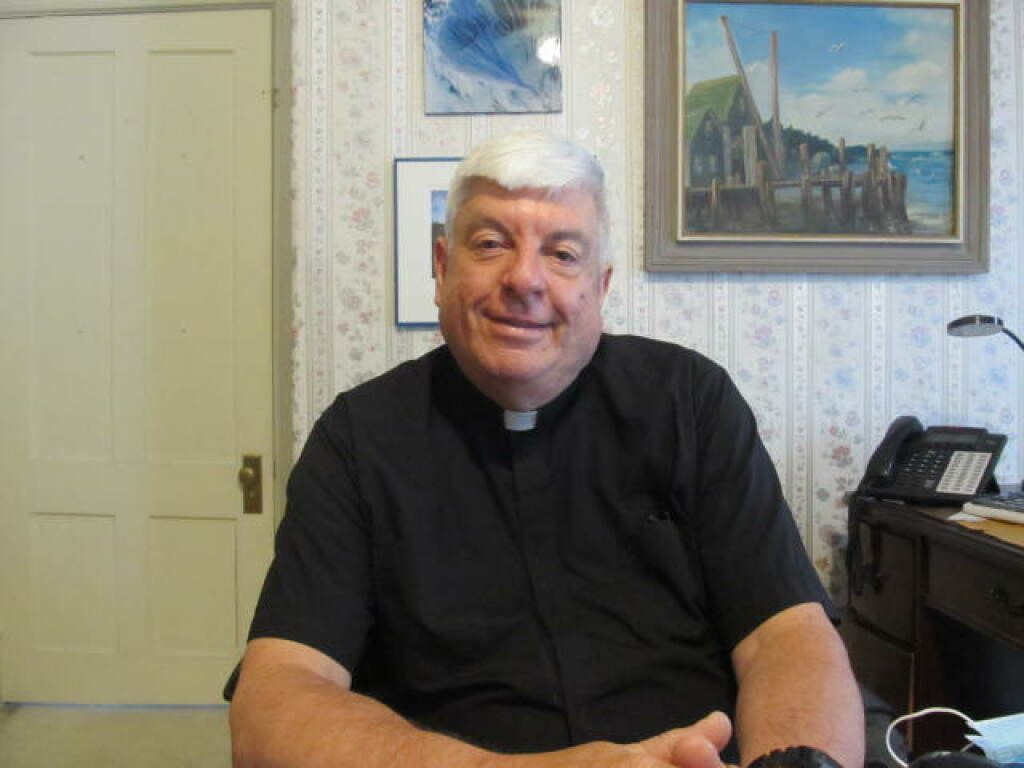 No Matter What, I Know You’ll Be There for Me
No Matter What, I Know You’ll Be There for Me
Homily for the Third Sunday of Lent
March 7, 2021
Continuing our Lenten journey in light of Pope Francis’ document declaring this a Year of St. Joseph, we begin with the Scripture: “You shall not have other gods besides me”—the very beginning of the Ten Commandments, such an important part of our faith heritage. Jesus taught us to call God “Our Father”. How do St. Joseph, along with the important people in our lives, reveal God to us?
Let me begin with a story. In 1989 there was an 8.2 earthquake that almost flattened Armenia, killing over thirty thousand people in less than four minutes. In the midst of all the devastation and chaos, a father left his wife securely at home and rushed to the school where his son was supposed to be, only to discover that the building was as flat as a pancake. After the traumatic initial shock, he remembered the promise he had made to his son: “No matter what, I’ll always be there for you.” With tears running down his face, he began digging and removing piled up rubble. Others who arrived on the scene tried to pull him away, saying that the situation was hopeless. But the man kept digging. He asked the others: are you going to help me? They remarked that fires were breaking out and explosions were happening everywhere, and that it was too dangerous to continue. But he kept digging. Police arrived and told him to go home. They would handle it now. But he refused and kept digging for eight hours…twelve hours…twenty…thirty six. Then at the thirty-eighth hour he pulled back a boulder and heard his son’s voice. He screamed his son’s name, “Armand!” He heard back, “Dad! It’s me. I told the other kids not to worry. I told them that if you were alive, you’d save me. There are fourteen of us left out of thirty-three, Dad.” His father said, “Come on out, boy!” The son responded, “No, Dad! Let the other kids out first because I know you’ll get me! No matter what, I know you’ll be there for me.”
Pope Francis points out that St. Joseph has enjoyed tremendous popularity throughout the history of the Church as a beloved father, who placed himself at the service of God’s entire plan of salvation. According to Pope Saint Paul VI, Joseph turned his vocation of domestic love into a superhuman offering of himself, his heart and all his abilities, giving a love placed at the service of the Messiah who was growing to maturity in his home.
Pope Francis writes, “Thanks to his role in salvation history, Saint Joseph has always been venerated as a father by the Christian people. This is shown by the countless churches dedicated to him worldwide, the numerous religious institutes, confraternities and ecclesial groups inspired by his spirituality and bearing his name, and the many traditional expressions of piety in his honor. Innumerable holy men and women were passionately devoted to him.”
In my own life, St. Joseph seems to have followed me around. As a child, I loved the statue of St. Joseph in church because Joseph had such a beautiful, compassionate face, and he held the infant Jesus with incredible care and love. I remember the nuns sharing a story of how Joseph was chosen—they collected the walking sticks of various men, and Joseph’s was the only one that bloomed with lilies, thus indicating that he was divinely chosen. My pastor when I was growing up was named Joseph. After my father died, I had an uncle who was named Joseph. In Belgium I was ordained a deacon by Cardinal Leon-Joseph Suenens in a church that had the earthly remains of Joseph de Veuster, now known to the world as St. Damien the leper of Molokai, Hawaii. I was ordained a priest by Bishop Joseph Maguire. For six years I lived at Mt. Marie and served as chaplain to the Sisters of St. Joseph—preaching at about twenty-five of their funerals each year. And most importantly, when I was in high school, my father died on March 19, 1968—the feast of St. Joseph on the church’s calendar.
My earliest memories of my own father were: when he would pick me up in his arms and hold me to his cheek, to this day I remember the delightful roughness of the stubble of his five o’clock shadow, and when I tried to hug him, my arms were too short to reach all the way around. I was blessed to have these fathers watching over me—my biological father, Stanley, and my spiritual father Joseph, and indeed, all who bore the name and lived the spirituality of Joseph. And all of them reminded me of God, whom Jesus taught us to address with confidence as “Our Father.”
The first of the Ten Commandments, as we heard in our first reading, is: I am the Lord your God; you shall have no other gods besides me. The Bible teaches that we are made by God and for God. This means that we have a huge desire for meaning, a wish for belonging, an ache to love and be loved. No one and nothing else, no “other gods”, can satisfy these desires and longings. I have come to know God through the love of all those who, like St. Joseph, mirrored a love that can only be divine. And this is how we come to God, through Saints and family members, heroes and teachers, and the rest of creation—flowers, rainbows and stars: all speak to us of their Creator, all remind us that in the midst of the challenges and difficulties of life, there is a presence that comforts, challenges and nourishes us.
And once we have experienced that love, we have opportunities to show that kind of love to others; to those who have no father or mother; to those who have been abused or neglected; to those who feel unloved and left out. Just as St. Joseph modeled the love of God in his family and his community, so can we. When others are living in hopelessness and despair, our tender and compassionate attention can give them hope and help them to know the God who can heal their pain and fill their emptiness with an infinite love. The gift we have received can now be shared as a gift.
You might also like
Father's Homilies




